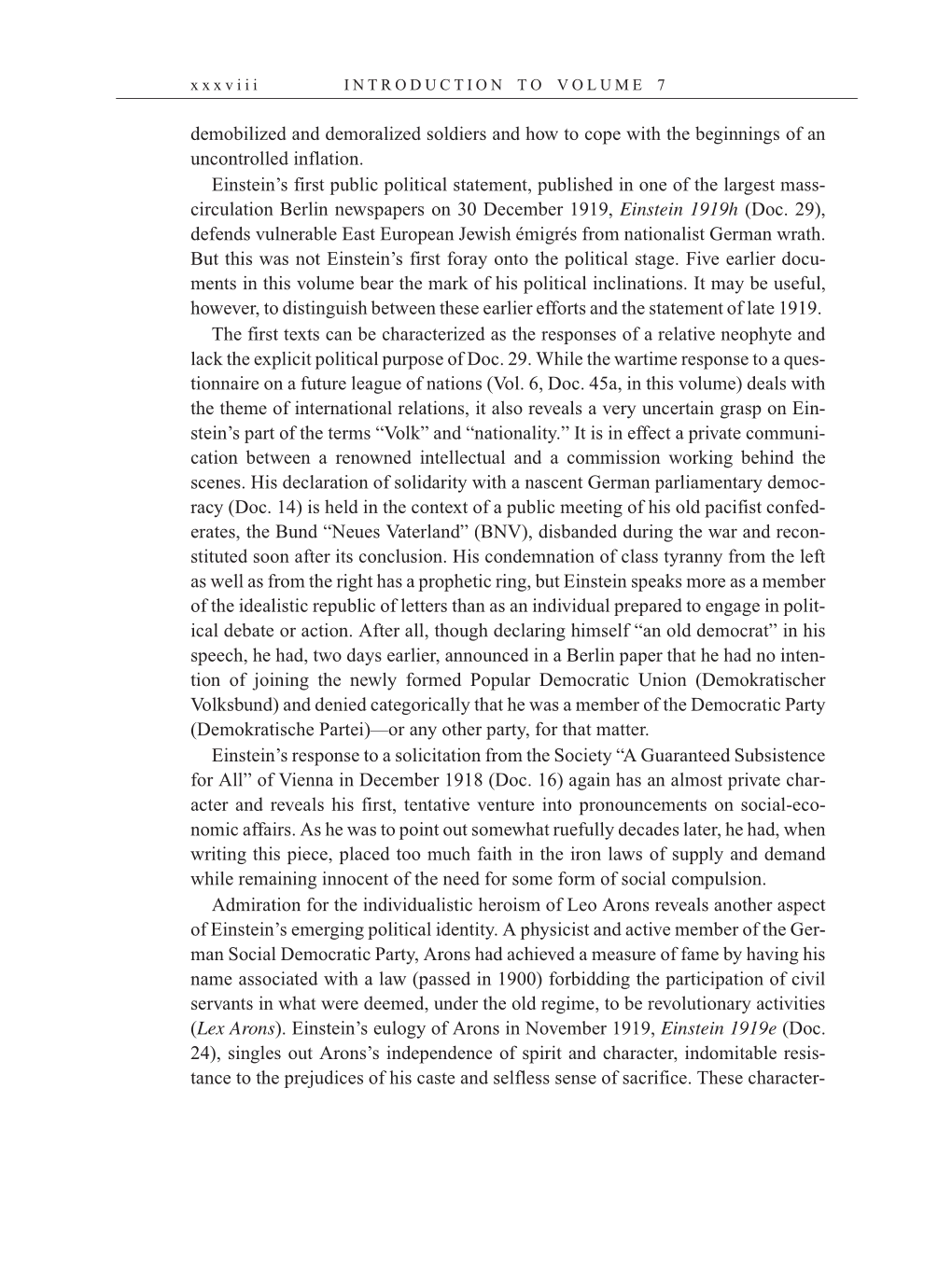x x x v i i i I N T R O D U C T I O N T O V O L U M E 7
demobilized and demoralized soldiers and how to cope with the beginnings of an
uncontrolled inflation.
Einstein’s first public political statement, published in one of the largest mass-
circulation Berlin newspapers on 30 December 1919, Einstein 1919h (Doc. 29),
defends vulnerable East European Jewish émigrés from nationalist German wrath.
But this was not Einstein’s first foray onto the political stage. Five earlier docu-
ments in this volume bear the mark of his political inclinations. It may be useful,
however, to distinguish between these earlier efforts and the statement of late 1919.
The first texts can be characterized as the responses of a relative neophyte and
lack the explicit political purpose of Doc. 29. While the wartime response to a ques-
tionnaire on a future league of nations (Vol. 6, Doc. 45a, in this volume) deals with
the theme of international relations, it also reveals a very uncertain grasp on Ein-
stein’s part of the terms “Volk” and “nationality.” It is in effect a private communi-
cation between a renowned intellectual and a commission working behind the
scenes. His declaration of solidarity with a nascent German parliamentary democ-
racy (Doc. 14) is held in the context of a public meeting of his old pacifist confed-
erates, the Bund “Neues Vaterland” (BNV), disbanded during the war and recon-
stituted soon after its conclusion. His condemnation of class tyranny from the left
as well as from the right has a prophetic ring, but Einstein speaks more as a member
of the idealistic republic of letters than as an individual prepared to engage in polit-
ical debate or action. After all, though declaring himself “an old democrat” in his
speech, he had, two days earlier, announced in a Berlin paper that he had no inten-
tion of joining the newly formed Popular Democratic Union (Demokratischer
Volksbund) and denied categorically that he was a member of the Democratic Party
(Demokratische Partei)—or any other party, for that matter.
Einstein’s response to a solicitation from the Society “A Guaranteed Subsistence
for All” of Vienna in December 1918 (Doc. 16) again has an almost private char-
acter and reveals his first, tentative venture into pronouncements on social-eco-
nomic affairs. As he was to point out somewhat ruefully decades later, he had, when
writing this piece, placed too much faith in the iron laws of supply and demand
while remaining innocent of the need for some form of social compulsion.
Admiration for the individualistic heroism of Leo Arons reveals another aspect
of Einstein’s emerging political identity. A physicist and active member of the Ger-
man Social Democratic Party, Arons had achieved a measure of fame by having his
name associated with a law (passed in 1900) forbidding the participation of civil
servants in what were deemed, under the old regime, to be revolutionary activities
(Lex Arons). Einstein’s eulogy of Arons in November 1919, Einstein 1919e (Doc.
24), singles out Arons’s independence of spirit and character, indomitable resis-
tance to the prejudices of his caste and selfless sense of sacrifice. These character-
